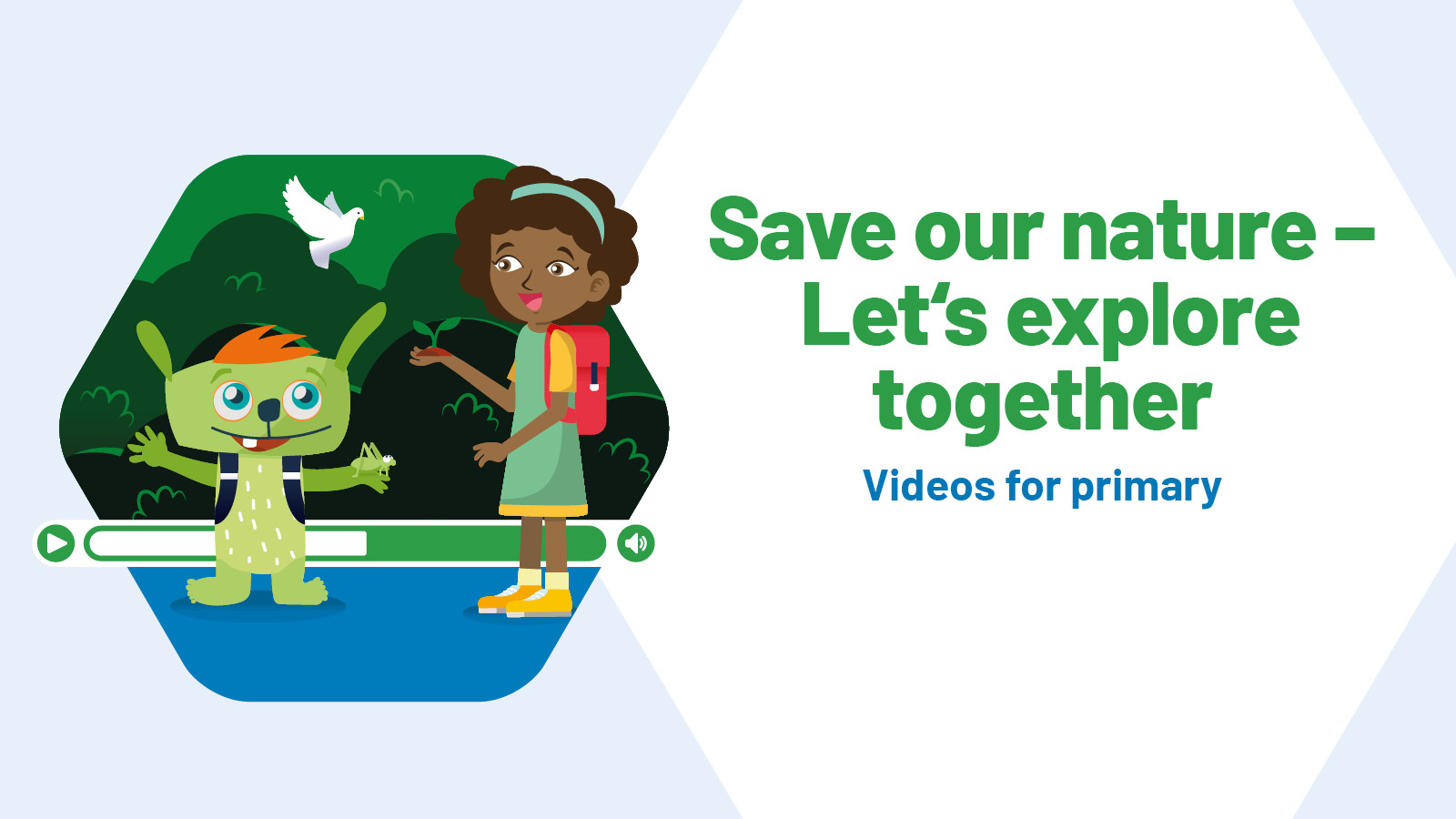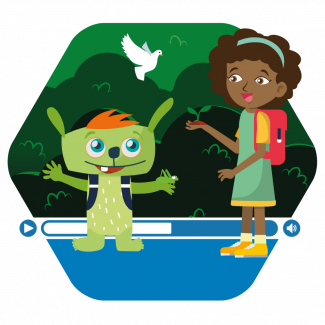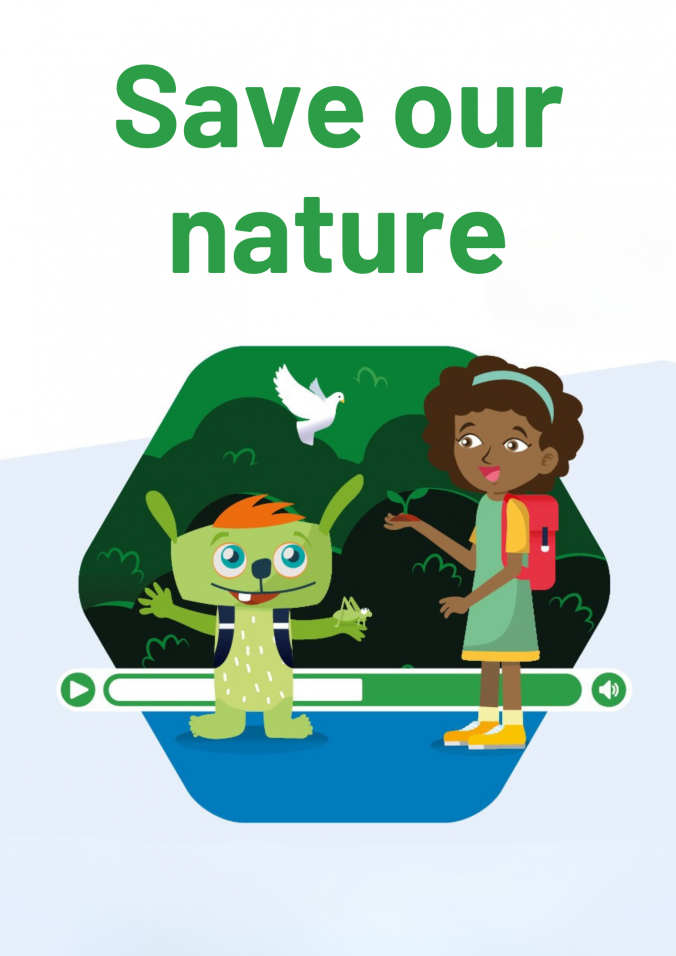How You can Use this Teaching Material

Overview
Content
The idea
These teaching materials for primary schools are designed to support teachers in carrying out scientific experiments in the classroom and discussing the results and explanations with the pupils. Their aim is to awaken pupils' interest in science, encourage their curiosity, and give them their first insights into scientific phenomena.
Teachers can incorporate the experiment and explanatory videos, together with the accompanying materials, into their lessons without any significant effort. The experiments on five topics - climate change, energy, plants, recycling, and water - as well as additional materials are provided for this purpose.
The experiment videos are structured so that the children can recreate the experiments themselves and experiment independently. For the review and explanation, teachers can show the explanatory video and discuss it together with the children. Teachers can also use the videos to develop their subject knowledge and then take over the explanation and discussion themselves.
All experiments can be carried out with everyday materials.
The background information serves as a good overview for optimal use in class – technically, methodically, and didactically. Some of the additional materials are also included as H5P or genially modules and can be completed independently by the children on a computer or tablet.
The videos can be used individually or consecutively. Some videos end with further questions. It is possible that the children will be inspired by the simplicity and feasibility of the experiments and will set off on their own to develop experiments to solve the questions or their own questions.
The material
The teaching material is divided into five topics:
Each topic offers different numbers of experiments.
The structure of the material
In the experiments, you will find:
- Background information
- Two experiment videos without spoken words
- An explanatory video in English
- Exercises and further ideas
The background information in the various experiments follows the same structure:
- Overview
- Summary and conceptual introduction
- 1st video: The experiment without the result
- Required materials
- Experiment guide
- Questions for the students
- Worksheets
- 2nd video: The experiment with the result
- 3rd video: Explanatory video
- The science behind the video
- Connection to sustainability
- Ideas for differentiated learning
- Overview of career options on the topic
- Further ideas and outlook
You can find cross-connections between the topics.
Adventures with Lilu and Alina
The characters Lilu and Alina appear as a connecting element in all the videos. The fantasy creature Lilu and the girl Alina already appeared in the teaching material Lilu’s House – Language Skills through Experiments.
A longer introductory story with the characters Lilu and Alina introduces the students to the whole of the material. Short stories lead to the individual topics and experiments. These also feature the title characters Lilu and Alina.

The implementation
You have various options for integrating the videos into your lessons. You can use them to enhance the children’s language skills. The material also offers adaptable worksheets, digital modules, and ideas for differentiated learning.
1st video
The first experiment video shows the experiment without the result and without spoken words.
- Watch it together with the children and pause at the specified points, collect assumptions with the children about possible results and have them give reasons for them.
- Watch it together with the children and then recreate the experiment yourself. Also pause at the specified points, collect assumptions about possible results with the children and have them give reasons for them.
2nd video
The second experiment video shows the experiment with the result, without spoken words.
- Watch it together with the children, OR
- Complete the experiment together with the children.
- In both cases, talk with the children about the result and their own assumptions. Was there anything expected/unexpected?
It can be helpful to provide sentence beginnings to promote language skills.
- I was surprised by ....
- I observed that ...
- I did not think that ...
- I noticed that ...
3rd video
The third video is an explanatory video illustrating the science behind the experiment. It is spoken in English.
- It serves as information for the teacher.
- However, it can also be watched together with the pupils.
- A transcript of the text spoken in the video is available.
Exercises and further ideas
- The worksheets can be adapted for your own use in your lessons.
- There are some H5P and genially modules to deepen the students’ understanding.
- Ideas for differentiated learning take account of the students’ different learning levels.
Share this page
